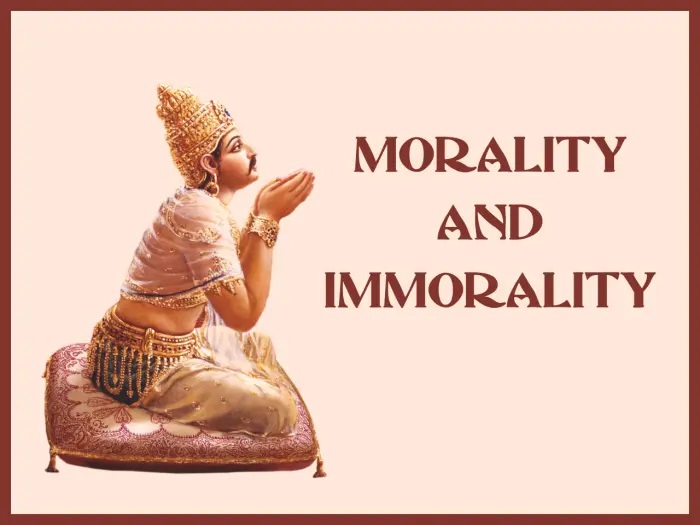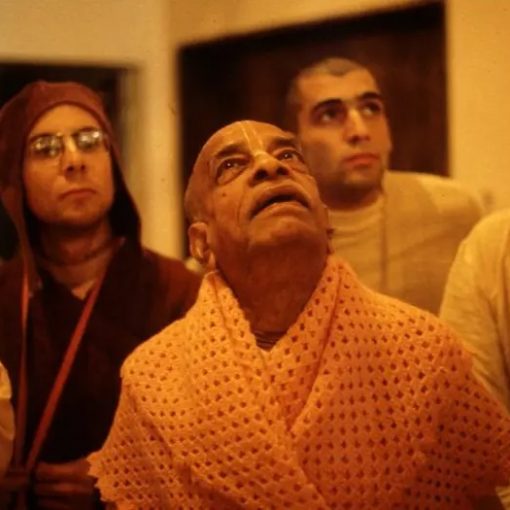From material point of view, what is moral, that is most, I mean to say, abominable from the point of… Just like Yudhishthira Maharaja. Yudhishthira Maharaja became very moral. Krishna advised him, “Just go and tell Dronacarya that, ‘Your son is dead,’ ” although his son was not dead. Because Dronacarya will not die. Unless he hears the news of the death of his son, he’ll not die. So he would not believe anyone, but Yudhishthira Maharaja is famous, very moral. So Krishna asked him that, “You go, otherwise he’ll not believe anyone.” So Yudhishthira Maharaja hesitated, “How can I say lies?” So for this he had to see hell. He became immoral. Man-nimitte kritam papam punyaya eva kalpate.
So our standard of morality and immorality is to see whether Krishna is satisfied. If Krishna is satisfied, then it is morality. If Krishna is dissatisfied, then it is immoral. And Krishna’s representative also. Therefore it is said, yasya prasadad bhagavat-prasado yasyaprasadan na gatih kuto ‘pi. Our morality is to satisfy Krishna or His representative, guru. Yasya prasada. If he’s satisfied, then it is moral. If he’s not satisfied, then it is immoral. Na gatih kuto ‘pi.





